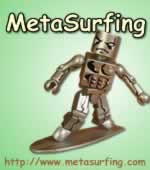
I'm absolutely in love with this recently released Heinlein book, For Us, the Living: A Comedy of Customs.
Everything about this novel is interesting, even the experience of reading it. For Us, the Living: A Comedy of Customs was written in 1938-1939; it is Robert A. Heinlein's first extended piece of fiction, and was never published because in 1939 it was not simply unsold: It was probably unpublishable. Over the 20th century, didactic novels of a utopian bent had been increasingly perceived as unmarketable (dystopias like Huxley's Brave New World [1932] or Orwell's Nineteen Eighty-Four [1949] do very much better); but more specifically, For Us, the Living promulgates the kind of arguments about sex, religion, politics and economics that normally gain publication through fringe presses, not the trade publishers Heinlein submitted his manuscript to, Random House and Macmillan (which did all the same publish B.F. Skinner's Walden Two in 1948).
For us, though, in 2004, For Us, the Living, as far as its arguments go, is pure Heinlein; indeed, because almost every radical notion he ever generated appears here in utero, the book rewrites our sense of Heinlein's entire career; and because Heinlein's career, as we understood it, has always seemed expressive of the nature of American SF from 1939 to 1966, this small, slightly stumblebum first novel rewrites our understanding of those years, especially the early ones, when John W. Campbell Jr. was attempting to shape the nascent genre into a weapon of future-purification.
It has certainly been well known that Heinlein (unlike the younger Isaac Asimov) found Campbell's personality and diktats less than persuasive, but the degree to which he corralled his imaginative intellect, in order to help create the SF that missed the boat, has never I think really been guessed. In a nutshell, the ideas about sex and privacy and government that inch into view—just a little pruriently, perhaps—through the finger-wagging pages of For Us, the Living are exactly the ideas that the professional writer Heinlein only let himself begin to utter again in 1959, with Starship Troopers. I'm not about to suggest that if Heinlein had been able to publish openly in the pages of Astounding in 1939, SF would have gotten the future right; I would suggest, however, that if Heinlein, and his colleagues, had been able to publish adult SF in Astounding and its fellow journals, then SF might not have done such a grotesquely poor job of prefiguring something of the flavor of actually living here at the onset of 2004.
Watching the Competent Man being born
A short notice of this text cannot begin to articulate the minutiae of similtude and difference between early Heinlein and late. Central to both periods is the concept of the absolute privacy of the individual citizen of America; as the new Constitution of 2028 states:
Every citizen is free to perform any act which does not hamper the equal freedom of another. No law shall forbid the performance of any act, which does not damage the physical or economic welfare of any other person. No act shall constitute a violation of a law valid under this provision unless there is such damage, or immediate present danger of such damage resulting from that act.
This is a radical doctrine, as Heinlein clearly argues, for it means
the end of the blue laws, and a grisly unconscious symbiosis between the underworld and the organized churches—for the greatest bulwark of the underworld were always the moral creeds of the churches.
And so forth. These two quotes, which appear 200 pages apart in the text, are, as one might put it, just like Heinlein. The consequences, direct and cognate, which For Us, the Living doesn't really go very far to dramatize, run from the absolute and genuine separation of church and state, to the liberation of women, to very widespread private nudity, and to what we call, in this world, "open marriage."
The story through which these arguments are put—they include long lessons in Social Credit—begins typically. A young man named Perry from 1939 is, more or less magically, transported to 2087, where he learns about the brave new world which has evolved. He is necessarily as stupid as most of his fellow visitors to utopia—else there would be no reason to tell him everything down to the last detail—but gradually changes into a Competent Man, piloting the first spaceship around the moon in a slingshot ending, though before he gets Competent he has to spend a while in a psychological rehabilitation unit after biffing the nude male friend of his new nude lover Diana because he has failed to grasp the implications of privacy as applied to sexual freedom. The language in which this is all laid down (the word "breasts" never appears, though "breast"—designating a vague frontal region—shows up lots) is perhaps the most poignant residue of the claptrap writers had to grapple with just a few decades ago.
...
More here and here.

No comments:
Post a Comment